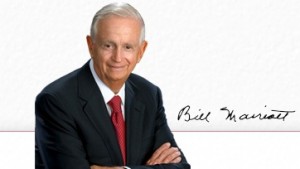B.C. Hydro has been planning a $8 billion Dam megaproject in Northern British Columbia, which as a result has raised strong opposition voices from the First Nations of BC: “B.C. is Indian land,” Premier Christy Clark declaed.
 Source: http://www.vancouverobserver.com/opinion/what-site-c-dam-really-explosion-new-fracking-wells
Source: http://www.vancouverobserver.com/opinion/what-site-c-dam-really-explosion-new-fracking-wells
I see this as a huge threat to B.C. Hydro (SWOT), as the First Nation Chiefs have the potential to persuade the Harper government to reject the Dam: though the Dam is estimated to cost $8 billion, however, it has not taken into account of the costs from lost farmlands and natural habitat: the Dam will cause an artificial flood, drowning 83 kilometers of the Peace River Valley. Not only will the First Nations be affected as their lands will disappear, but moreover, economy of BC will also be affected as fishing and agriculture industries upstream will be harmed severely. Altogether, these severe weaknesses in the project may eventually lead to shut down of the idea.
On the other hand, I read another article from The Sun which raises the point that although the Dam in Site C is claimed to offer new, clean energy in the cheapest form, leakage of a draft report from the Clean Energy Association of BC indicates that there are alternative ways of producing equal amount of energy, but with reduction cost of $1 billion. With double threats shooting at BC Hydro, I think there is high chance that the government will choose to save costs and protect society, thus shutdown the megaproject.
Therefore although the project has huge potentials to help promote clean energy and provide huge amounts of hydroelectric energy for the growing population in BC, the entire project may be shot down due to better alternatives. To keep the project running, I’m afraid BC Hydro will have to offer more advantages to the BC community, such as offering them new homes and facilities in the future, to be able to gain more acceptance by the government and society. Other actions BC Hydro could offer can include selling farmlands cheaply to the BC farmers, or subsidizing their farm production; as for the Firs Nations’ land, they should find something which have great value to replace their lost lands and homes, or offer them free hydroelectricity and give promise for clean water.
Even if BC Hydro manages to go forth with the project, the company is bound to face many more threats from external factors. Any failures of the project will be heavily criticized thus in proceeding this project, the BC Hydro bears a huge burden of perfection in the dam.
Thus from this current issue, we can have a further insight in how threats and other external factors of a business may be so powerful, that it may result in complete shut down of $8 billion worth mega-dam project. Firms must consider all factors thoroughly before making any decisions, or else it may become a very costly matter.
Article: http://www.vancouversun.com/news/First+Nation+chiefs+stage+Site+showdown/10215965/story.html





 S
S


